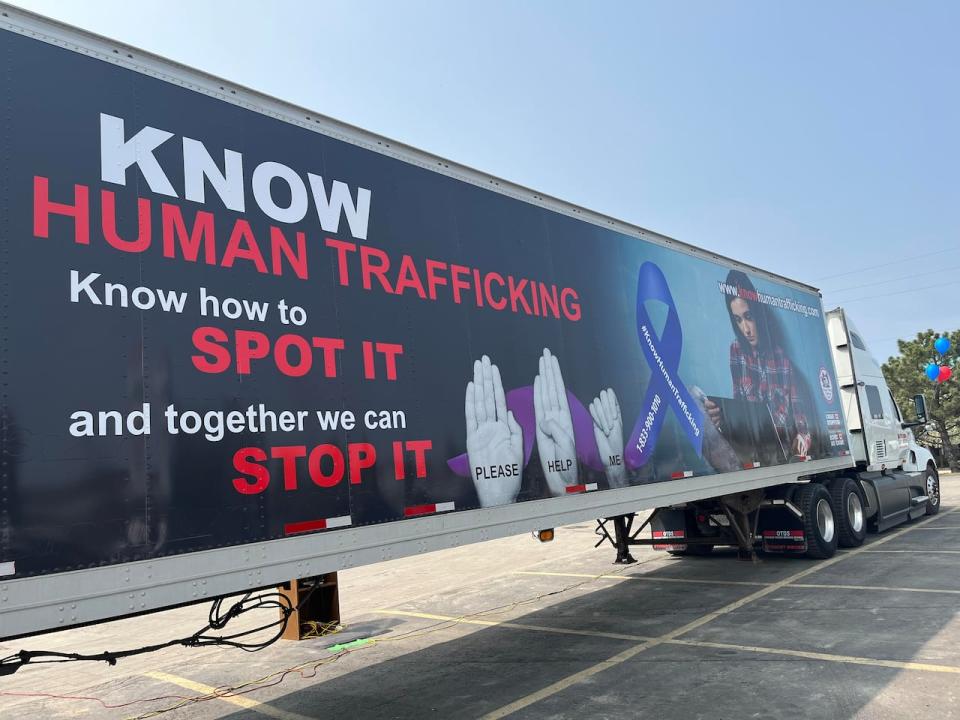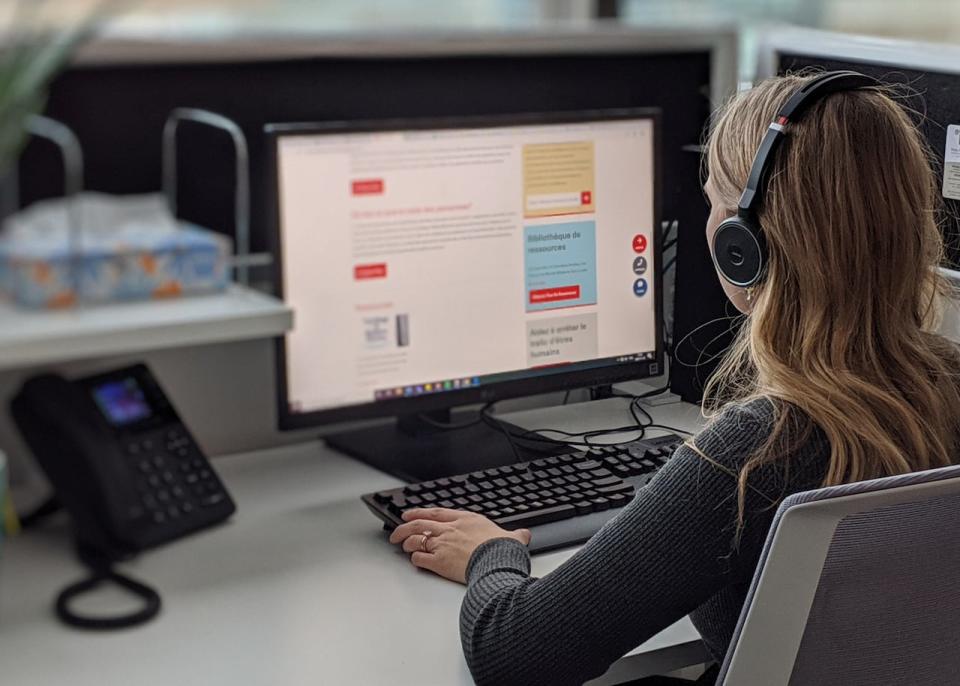Cornwall's proximity to 401 corridor 'exploited' by human traffickers

When a youth from the Cornwall, Ont., area went missing last year, Cornwall police identified them as being with a human trafficker — in New York City.
Through working with Homeland Security and the New York City Police Department, police were able to track down the missing youth and bring them home "rather rapidly."
"Those are the types of stories we don't hear about very often," said Deputy Chief Vincent Foy of the Cornwall Police Service.
"But I'm very proud of our investigators for the great work they did there to intervene before another victim could be a statistic," he told CBC Radio's Ontario Morning.
That incident is just one of the several cases of human trafficking that Cornwall police respond to every year, Foy said.
In 2022, police noticed a 220 per cent increase in incidents compared to the year before. In 2023, the number of incidents dropped slightly — but those numbers only represent the cases police knew about.
401 corridor frequently used by traffickers
Cornwall's location makes it "an attractive region" for crime, Foy said. It's near big cities including Ottawa, Toronto and Montreal, and is close to the Canada-U.S. border.
"It's an area that's long been exploited by different organized crime groups because of our proximity to the 401," Foy said.
The Highway 401 corridor between Windsor and Quebec is a common route for traffickers to transport their victims, according to police and experts who work with human trafficking survivors.

This truck, wrapped in messaging created by the Know Human Trafficking campaign, is being driven on Ontario's Highway 401 to raise awareness about what to do in case someone spots the signs of human trafficking. (Angela McInnes/CBC)
"If you think of human trafficking, we used to think of people standing outside on the street, and now it's more covert and it's easier to go unnoticed," he said.
That's largely due to the internet, which Foy said has changed how trafficking and luring works.
"Social media is making it easier for organized crime groups to attract potential victims," he said, adding it will often happen through different social media apps, and will target mostly young women and girls.
The Cornwall Police Service will receive around $300,000 over the next three years from provincial funding to support crime prevention efforts across Ontario.
Police said part of the money will be used to support enhanced training and skills related to organized crime, including human trafficking investigations.
Majority of calls to trafficking hotline from Ontario
Calls from Ontario represented 67 per cent of human trafficking incidents disclosed to the Canadian Centre to End Human Trafficking's hotline between 2019 and 2022.
"It's important to note that this is not an indication of the prevalence of human trafficking in Canada," said the centre's executive director Julia Drydyk, adding those numbers are only the "tip of the iceberg."
The higher number of trafficking cases in Ontario can be attributed to a larger population density and a greater number of commercial markets where trafficking is taking place, Drydyk said.
Traffickers often use the 401 corridor and other major routes to transport their victims, allowing them to move quickly and avoid municipal law enforcement, Drydyk said.
"There is no one demographic of someone who's at risk of human trafficking. We've seen victims of human trafficking across all gender, class and race backgrounds," Drydyk said.
Often, traffickers look for vulnerable people with low self-esteem, problems at school, or those dealing with poverty, homelessness or substance abuse.
"Overwhelmingly, human trafficking looks more like intimate partner violence than it does like the stuff you normally see in the media like Taken, where people are being kidnapped and forced across borders," she said, referring to a 2008 film in which a former CIA operative's daughter is kidnapped by traffickers.

Along with assisting victims and survivors, the Canadian Human Trafficking Hotline also provides information to the public on what human trafficking is and how to recognize the signs if a loved one is being exploited. (The Canadian Centre to End Human Trafficking)
The Canadian Centre to End Human Trafficking has reporting protocols with 99 different law enforcement units across the country, but Drydyk said the hotline will meet people where they are, and calling police is not always the first step.
"We don't call the cops unless the person on the other end of the phone wants us to, or if we have a legal duty to report where we feel like there's a minor at risk," she said, adding fewer than seven per cent of the cases they respond to end with any referral to law enforcement.
When people call the hotline, their main priority is usually accessing shelter and housing, supportive counselling, and legal services.
"Often they are looking for their basic needs to be met and to exit the situation and [for] life stabilization before they're ready to talk to law enforcement," Drydyk said.
Support is available for those affected by human trafficking. You can call The Canadian Human Trafficking Hotline at 1-833-900-1010.


